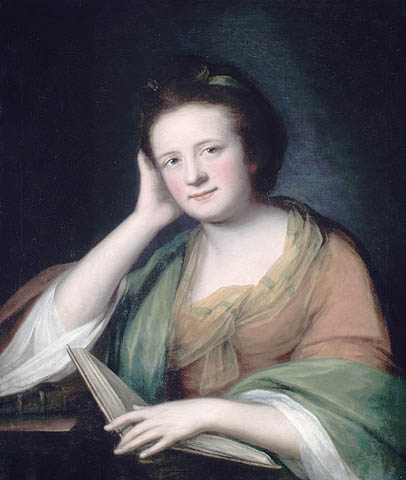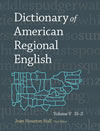Frances Brooke, destroyer of English (not literally)
 I don't have much to say about the latest tempest in a teapot over the non-literal use of "literally." It started, as such things often do these days, on Reddit, where a participant in the /r/funny subreddit posted an imgur image showing Google's dictionary entry for "literally" that pops up when you search on the word. The second definition reads, "Used for emphasis or to express strong feeling while not being literally true." That was enough for the redditor to declare, "We did it guys, we finally killed English." As the news pinged around the blogosphere, we got such fire-breathing headlines as "Society Crumbles as Google Admits 'Literally' Now Means 'Figuratively'," "Google Sides With Traitors To The English Language Over Dictionary Definition Of 'Literally'," "I Could Literally Die Right Now," and "It’s Official: The Internet Has Broken the English Language."
I don't have much to say about the latest tempest in a teapot over the non-literal use of "literally." It started, as such things often do these days, on Reddit, where a participant in the /r/funny subreddit posted an imgur image showing Google's dictionary entry for "literally" that pops up when you search on the word. The second definition reads, "Used for emphasis or to express strong feeling while not being literally true." That was enough for the redditor to declare, "We did it guys, we finally killed English." As the news pinged around the blogosphere, we got such fire-breathing headlines as "Society Crumbles as Google Admits 'Literally' Now Means 'Figuratively'," "Google Sides With Traitors To The English Language Over Dictionary Definition Of 'Literally'," "I Could Literally Die Right Now," and "It’s Official: The Internet Has Broken the English Language."
The outrage was further heightened by the realization that (gasp!) pretty much every major dictionary from the OED on down now recognizes this sense of the word. So now we get vitriol directed toward the OED's lexicographers, who revised the entry for "literally" back in September 2011, coming from such sources as The Times, The Daily Mail, The Guardian, and The Telegraph. [Update: As Fiona McPherson points out on the OxfordWords blog, the usage was actually noted in the "literally" entry when it was first published in 1903. The 2011 revision reorganized the entry and expanded the historical record.]
Read the rest of this entry »


 Many Language Log readers are no doubt familiar with the
Many Language Log readers are no doubt familiar with the 